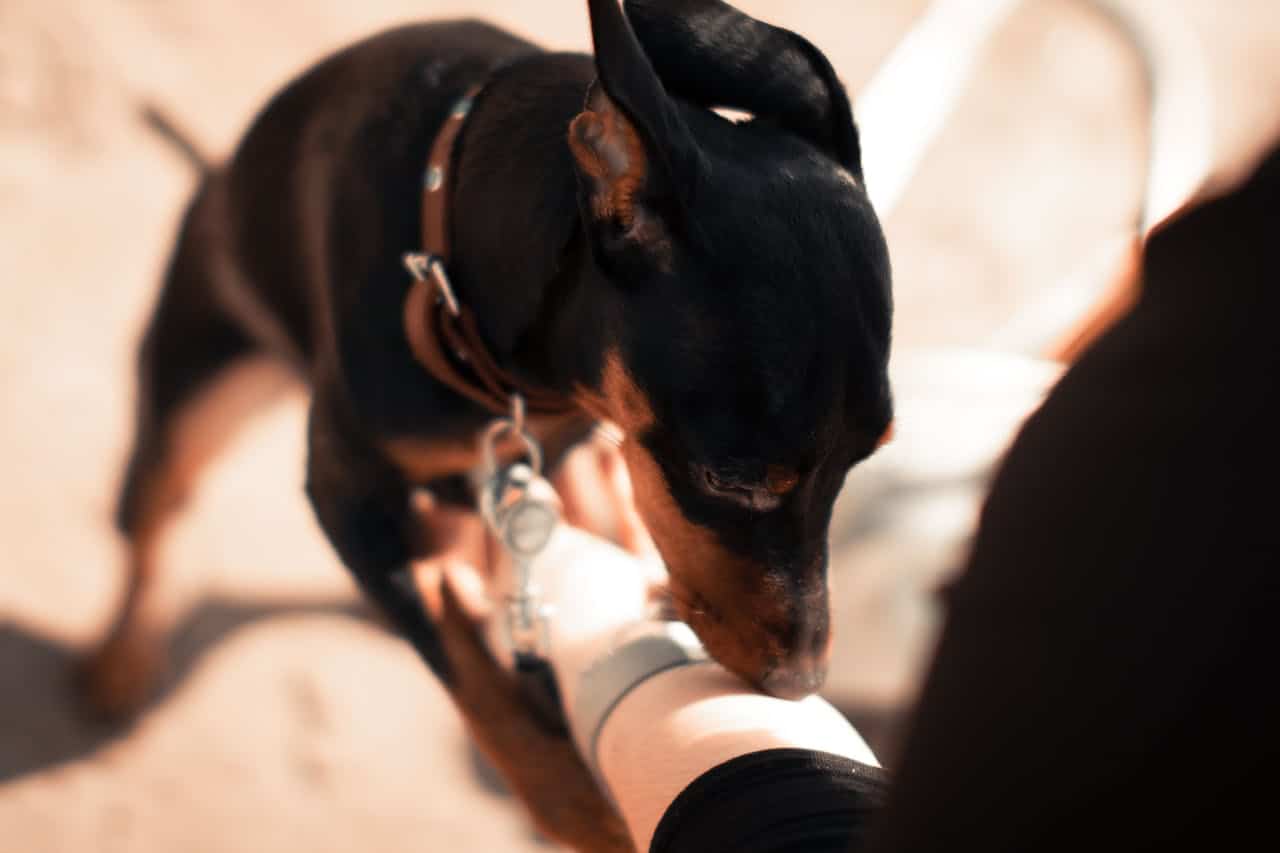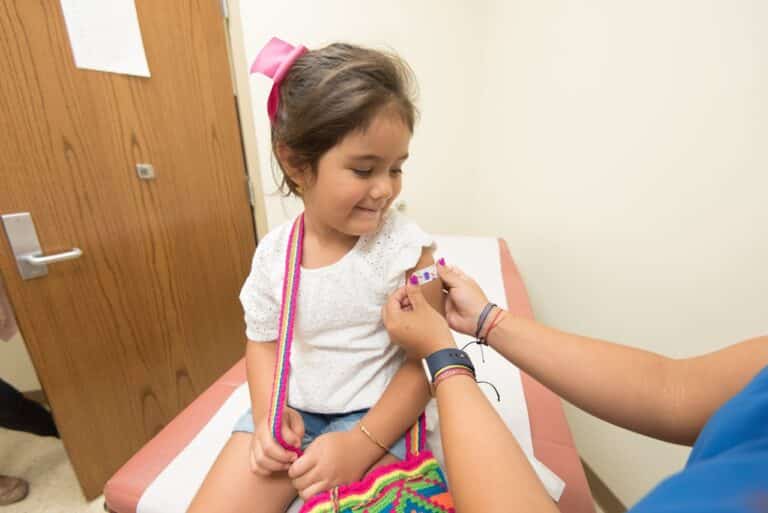Dogs have long been considered man’s best friend, known for their loyalty and unconditional love. But there’s more to our canine companions than meets the eye. Recent scientific studies suggest that dogs have an uncanny ability to sense bad people. This isn’t just an old wives’ tale. Research shows that dogs can detect untrustworthy individuals, influencing how they interact with them. This discovery sheds light on the incredible perceptiveness of our furry friends.
In a world where trust is paramount, dogs have a remarkable knack for discerning the trustworthy from the deceitful. Scientists have conducted various experiments to explore this phenomenon, uncovering that dogs can indeed sense bad people. This ability is rooted in their keen observation of human behavior and body language. In this article, we’ll delve into the science behind this extraordinary canine skill, exploring how dogs assess human trustworthiness and what it means for their relationships with us.
How Can Dogs Sense Bad People?
Dogs possess an extraordinary ability to sense untrustworthy individuals, a skill rooted in their acute observation and intelligence. A groundbreaking study conducted at Kyoto University in Japan, led by Akiko Takaoka, revealed fascinating insights into this capability. The research aimed to determine if dogs could discern whether a person was trustworthy or not.
The Experiment
The study involved thirty-four dogs and was divided into three parts. In the first round, researchers pointed to a container where dog food was hidden. As expected, the dogs eagerly ran to the container, anticipating a reward. In the second round, however, the researchers pointed to an empty container, deceiving the dogs. When the dogs realized there was no food, they quickly learned to distrust the human.
By the third round, the researchers once again pointed to a container with food. Despite the previous deception, the dogs hesitated and did not respond to the cue. This behavior demonstrated that the dogs had learned to assess the reliability of the person based on their past actions. Remarkably, all thirty-four dogs exhibited this response, indicating a unanimous understanding of trustworthiness.
These findings highlight the sophisticated social intelligence of dogs. They can evaluate human behavior and make judgments about trustworthiness, showcasing their ability to adapt based on experiences. This skill is not just about following commands but involves a deeper level of understanding and decision-making.
The Science Behind a Dog’s Trust
Understanding the mechanism behind a dog’s ability to sense bad people involves delving into their cognitive and emotional capacities. Dogs are known for their keen observation skills, which are crucial in deciphering human behavior. This section explores the scientific explanations for how dogs process and react to trustworthiness in humans.
Cognitive Abilities and Social Intelligence
Dogs have evolved alongside humans for thousands of years, developing an exceptional understanding of human gestures, expressions, and emotions. Their cognitive abilities enable them to interpret subtle cues that may go unnoticed by humans. For instance, a dog’s sensitivity to body language allows them to pick up on inconsistencies and deceptive behaviors. When a person points to an empty container, the dog’s ability to remember this misleading action helps them avoid future deception.
Emotional Intelligence
In addition to cognitive skills, dogs possess a high level of emotional intelligence. They are capable of reading human emotions and responding accordingly. This emotional attunement is not just limited to their owners but extends to strangers as well. When dogs encounter someone displaying negative or aggressive behavior, they instinctively react with caution or avoidance. This response is part of their survival mechanism, honed over generations to protect themselves and their human companions.
Oxytocin and Bonding
Another critical factor in a dog’s ability to sense trustworthiness is the hormone oxytocin, often referred to as the “love hormone.” Oxytocin plays a significant role in social bonding and trust. Studies have shown that interactions between dogs and their owners increase oxytocin levels in both, reinforcing the bond and enhancing the dog’s ability to trust and be trusted. When a dog encounters an untrustworthy person, the lack of positive interaction and oxytocin release may contribute to their wary behavior.
These scientific insights reveal that a dog’s trust is not merely a result of training but is deeply rooted in their cognitive and emotional framework. This understanding underscores the importance of building a genuine, trustworthy relationship with our canine companions.

Real-World Applications: Dogs and Human Behavior
The ability of dogs to sense bad people has practical implications in various real-world scenarios. Understanding how dogs assess human behavior can enhance their roles in society, from companionship to professional tasks.
Therapy and Assistance Dogs
Therapy and assistance dogs rely heavily on their ability to read and respond to human emotions. Their skill in sensing untrustworthiness or distress makes them invaluable in supporting individuals with mental health issues or disabilities. These dogs provide not only physical assistance but also emotional support, responding to cues that indicate their handler’s emotional state. By avoiding interactions with untrustworthy individuals, therapy dogs can help create a safer and more supportive environment for their owners.
Law Enforcement and Security
Dogs are widely used in law enforcement and security roles due to their keen sense of smell and ability to detect danger. Their ability to sense bad people can be an asset in these fields. For instance, security dogs at airports and public events can identify individuals who exhibit suspicious behavior. This capability enhances their effectiveness in preventing potential threats and ensuring public safety. Law enforcement agencies can train dogs to recognize and respond to untrustworthy behavior, adding an extra layer of security in various situations.
Everyday Companionship
For the average dog owner, understanding their pet’s ability to sense bad people can improve daily interactions and enhance the bond between dog and owner. Dogs often react to visitors or strangers in ways that may seem inexplicable to humans. Recognizing that these reactions are based on a keen sense of trustworthiness can help owners better understand and respond to their dog’s behavior. This understanding can foster a more intuitive and supportive relationship, where the dog’s instincts are valued and trusted.
Protective Instincts
Dogs’ protective instincts are closely tied to their ability to sense bad people. This trait makes them excellent guardians of homes and families. When a dog senses untrustworthy behavior, they may become more vigilant and protective, alerting their owners to potential threats. This natural ability can provide an added sense of security for families, knowing their dog is always on the lookout for untrustworthy individuals.
These real-world applications highlight the diverse roles dogs play in our lives, leveraging their ability to sense bad people to provide support, security, and companionship.
Dogs and Social Interactions: Building Trust
Understanding how dogs sense bad people can significantly influence social interactions between dogs, their owners, and strangers. Building trust with a dog involves recognizing and respecting their instincts and behaviors.
Positive Reinforcement and Trust Building
Building trust with a dog requires patience and positive reinforcement. Dogs respond well to consistent and kind behavior. When training a dog or building a relationship with one, using positive reinforcement techniques such as treats, praise, and affection can foster a sense of trust. This approach encourages dogs to see humans as reliable and trustworthy companions.
Reading Canine Body Language
Recognizing and understanding canine body language is crucial in building trust. Dogs communicate their feelings through their posture, tail movements, ear positions, and facial expressions. By paying attention to these signals, humans can better respond to their dog’s needs and emotions. For example, a dog that exhibits signs of discomfort or anxiety around certain individuals may be sensing something untrustworthy about them. Respecting these signals and providing comfort can strengthen the bond between dog and owner.
Encouraging Positive Socialization
Exposing dogs to a variety of social situations in a controlled and positive manner can help them develop confidence and trust in humans. Socialization should include interactions with different people, environments, and other animals. This exposure helps dogs learn to distinguish between trustworthy and untrustworthy behavior, enhancing their social skills and overall well-being.
Building a Routine
Dogs thrive on routine and predictability. Establishing a consistent daily routine can help build a dog’s trust in their owner. Regular feeding times, walks, and play sessions create a sense of security and reliability. When dogs know what to expect, they are more likely to trust their owner’s intentions and actions.
Addressing Negative Experiences
If a dog has had negative experiences with untrustworthy individuals, it is essential to address these experiences with care. Gradual exposure to positive and trustworthy interactions can help rebuild the dog’s trust. Patience and understanding are key in helping a dog overcome past traumas and develop a healthy, trusting relationship with humans.
By focusing on these strategies, dog owners can build a strong foundation of trust with their canine companions, ensuring a harmonious and fulfilling relationship.

My Personal RX for Enhancing Pets and Pet Owners’ Wellbeing
The bond between pets and their owners is not only emotionally rewarding but can also contribute to better physical and mental health for both parties. As a healthcare professional, I believe in nurturing this relationship through practices that enhance the well-being of both the pet and the owner.
- Stay Active Together: Engage in regular physical activities with your pet, such as walking or playing fetch. This not only helps keep both you and your pet physically healthy but also strengthens your emotional connection.
- Take Immune Support Supplements: As a pet owner, maintaining your health is crucial for being able to care for your pet effectively. Immune Support supplements can help enhance your immune system, making you more resilient to illnesses that could affect your ability to care for your pet.
- Establish Routine: Pets thrive on routine, and having a predictable schedule for walks, feeding, and playtime can help reduce anxiety for both you and your pet. A routine helps foster a sense of security and trust, which is fundamental to a strong pet-owner relationship.
- Prioritize Communication: Learn to understand and communicate with your pet through their body language and behavior. Responding appropriately to their needs can help build trust and reduce stress on both sides.
- Manage Stress: Reduce stress in your life to improve your mood and the overall atmosphere at home. High stress can affect your pet as well, as they are sensitive to your emotions. Techniques from my latest book Heal Your Gut, Save Your Brain can be particularly helpful. This guide not only helps improve your digestive health, which is closely linked to mood regulation, but also offers holistic approaches to managing stress and enhancing mental clarity.
- Educate Yourself on Pet Care: Continuously educate yourself on the best practices for caring for your pet’s species and breed. Understanding your pet’s specific health and behavioral needs can prevent misunderstandings and improve care.
- Regular Vet and Health Check-ups: Just as you would monitor your health, ensure your pet receives regular veterinary check-ups to maintain their health. Preventive care is crucial for early detection of any health issues.
By integrating these practices into your daily life, you can enhance the health and happiness of both you and your pet, fostering a loving and supportive relationship. This holistic approach ensures that both pet and owner can enjoy a high quality of life together.

Sources:
- Lux, H. (2024, February 27). Dogs can recognize a bad person and there’s science to prove it. https://www.good.is/dogs-can-recognize-a-bad-person-and-theres-science-to-prove-it
- zooplus SE. (2024, June 11). Dogs and their Senses. Zooplus Magazine. https://www.zooplus.co.uk/magazine/dog/dog-health-and-care/dogs-and-their-senses
- LaFlamme, S. (2024, March 10). Building Trust with Your Dog Leads to Building Trust Within Yourself – Canines for Heroes. Canines for Heroes. https://caninesforheroes.org/building-trust-with-your-dog-leads-to-building-trust-within-yourself/











 Subscribe to Ask Dr. Nandi YouTube Channel
Subscribe to Ask Dr. Nandi YouTube Channel









